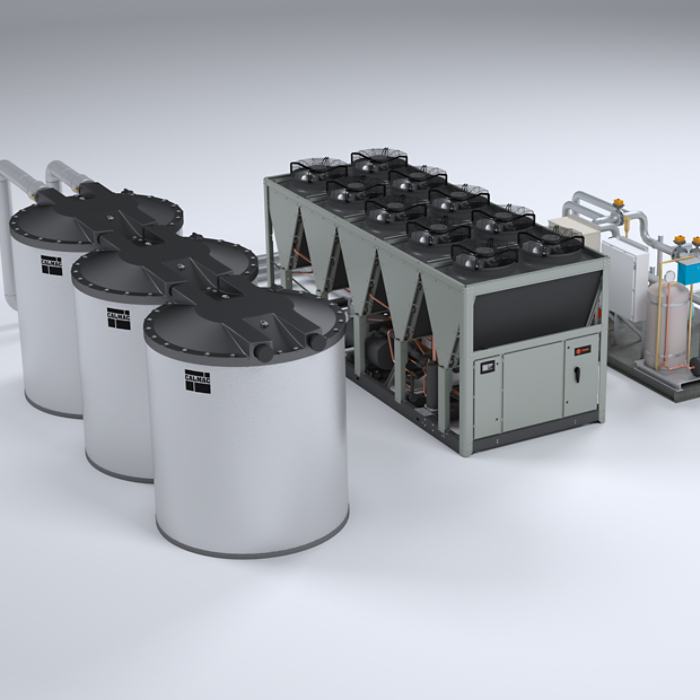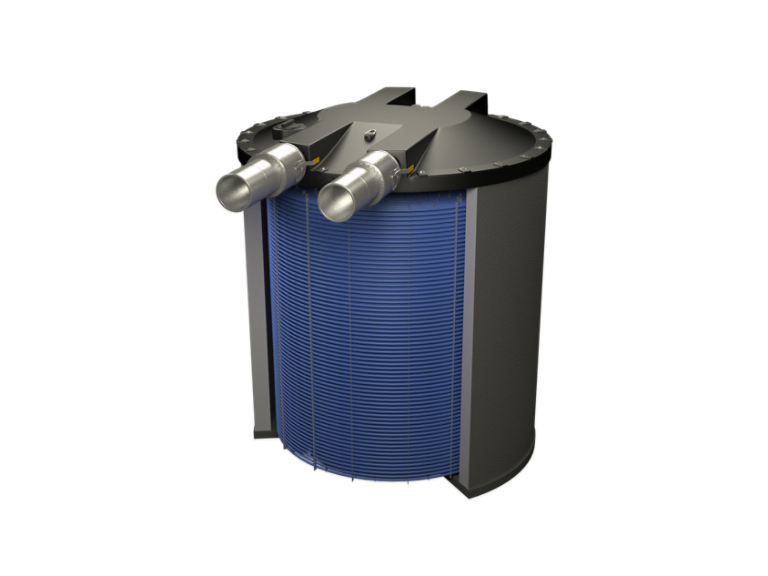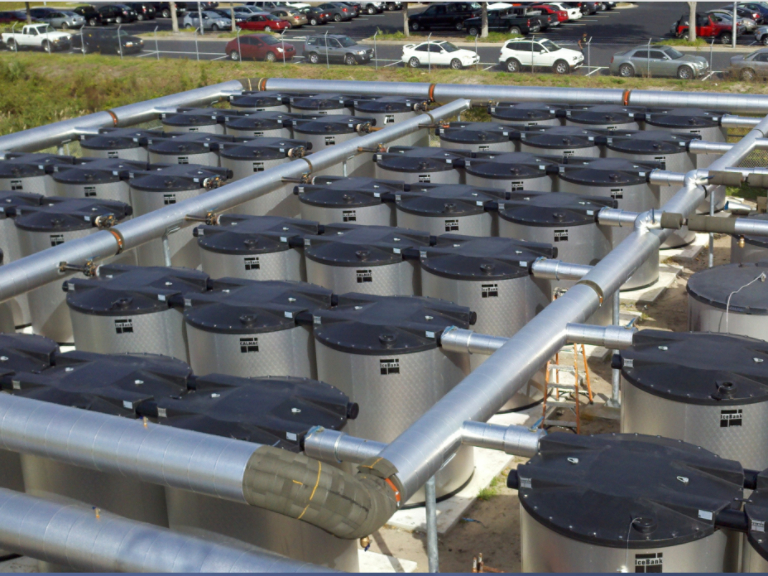Both new and existing buildings need more affordable, flexible ways to heat and cool based on energy availability. The answer is Thermal Energy Storage—which acts like a battery in a heating and cooling chiller plant to help improve energy, cost and carbon efficiency. Besides offering a great ROI, adding thermal energy storage is highly affordable thanks to recent tax incentives.
Trane is your personal thermal energy storage provider, combining leading technology, controls knowledge and systems expertise based on your unique building circumstances. Your local team can collaboratively guide you through a custom, seamless implementation based on your unique goals.







